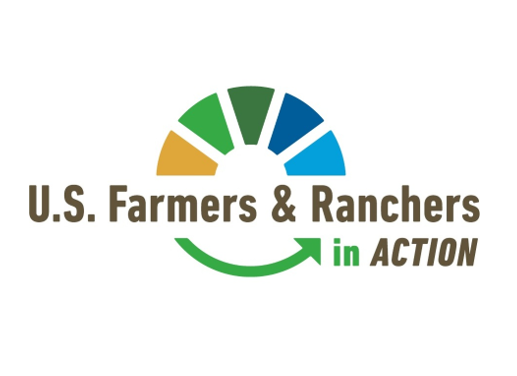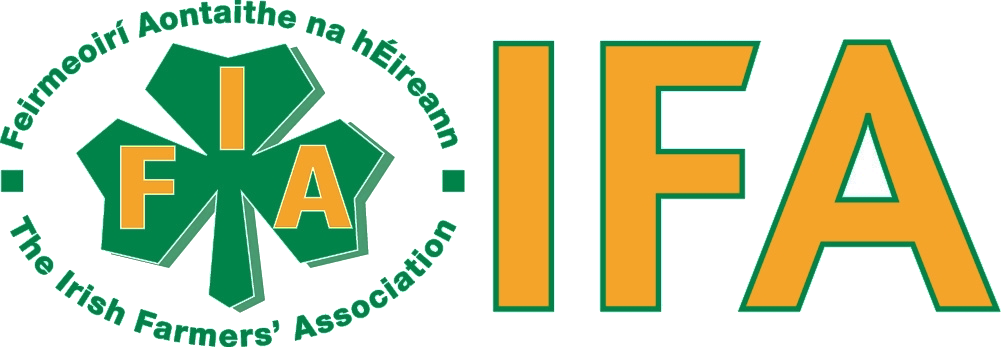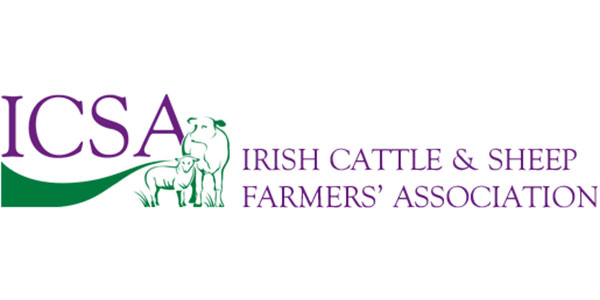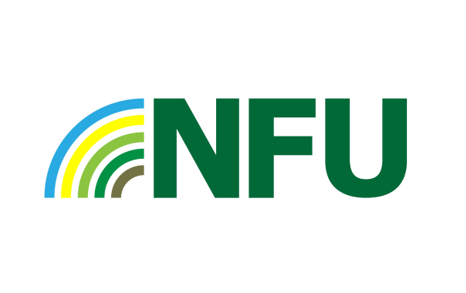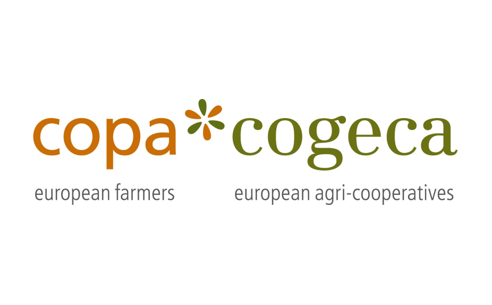Background
US Farmers and Ranchers in Action (USFRA) (formerly known as US Farmers and Ranchers Alliance) was reportedly founded as a response to a public relations crisis for big agribusiness. The nonprofit changed its name in July 2020 to represent “the leaders in action who are committed to co-creating the sustainable food systems of the future.”1“U.S. Farmers and Ranchers Alliance Announces Name Change to U.S. Farmers & Ranchers in Action,” PR Newswire, July 8, 2020. Archived September 14, 2020. Archive.fo URL: https://archive.fo/wip/bJaJm 2Anna Lappé. “Who’s Behind the U.S. Farmers & Ranchers Alliance and Why It Matters,” Civil Eats, September 23, 2011. Archived September 14, 2020. Archived .pdf on file at DeSmog.
In November 2010, the documentary Food, Inc. was released, as were several other films critical of industrial agriculture and factory farming. USFRA formally launched some of its earliest reported efforts the following year. “A new public-relations campaign about agriculture got off to a splashy start,” the New York Times reported in 2011, “with full-page ads in newspapers and panel discussions live-streamed on the Internet, the newly formed U.S. Farmers and Ranchers Alliance began what it called a bid to ‘reshape the dialogue’ about the American food supply.”3Julia Moskin. “In Debate About Food, a Monied New Player,” New York Times, September 27, 2011. Archived December 24, 2019. Archive.fo URL: https://archive.fo/wip/CeUSG
USFRA lists its mission as seeking to “enable farmers and ranchers to have a dialogue with consumers and the supply chain” in federal tax filings for 2018, the most recent year available as of September 2020.4“US FARMERS & RANCHERS ALLIANCE 990 Form 2018,” ProPublica. Archived .pdf on file at DeSmog.
Documents obtained by The Intercept show that USFRA has partnered with CropLife America (an affiliate of CropLife International) on messaging strategies for the pesticides industry, including on a campaign whose objective was to give pesticides “a personable face”.5“CropLife America Communications Outreach Committee Conference Call May 13, 2016,” DocumentCloud. Archived September 14, 2020. Archive.fo URL: https://archive.fo/Xr3zf 6Lee Fang. “The playbook for poisoning the earth,” The Intercept, January 18, 2020. Archived August 31, 2020. Archive.fo URL: https://archive.fo/wKiF6 7“CLA Network,” CropLife America. Archived September 14, 2020. Archive.fo URL: https://archive.fo/4972Z
Stance on Climate Change
On a page titled “Join the Movement,” the USFRA writes: “Climate change is the greatest challenge facing humanity today. Greenhouse gas (GHG) emissions are at its core, and it is urgent that we reduce these emissions to slow climate change. While agriculture contributes 8.4 percent of U.S. GHG emissions, it is the only sector with the natural potential to mitigate emissions through climate-smart practices. With your help, we can address these issues.”8“Join the Movement,” USFRA. Archived September 14, 2020. Archive.fo URL: https://archive.fo/MwHD8
According to trade publication Successful Farming, in 2019 USFRA’s CEO Erin Fitzgerald said, “I think we can solve climate change flat out with agriculture at the table.”9Gil Gullickson. “More Farm Groups Now Acknowledge Manmade Climate Change and Are Forming Climate-Smart Plans,” Successful Farming, February 6, 2020. Archived September 14, 2020. Archive.fo URL: https://archive.fo/UgxAY
In 2019, Fitzgerald spoke in a Food Tank podcast where she said that farmers were the solution to protecting the planet: “If you truly believe in climate change, you have to believe that every farmer is stewarding something on their farm. I can think of no other sector that has the potential to be change-makers more than farmers.”10“Celebrating A Diversity of Opinions Is Key to Collaboration, Says Erin Fitzgerald,” Food Tank, April 2019. Archived September 14, 2020. Archive.fo URL: https://archive.fo/ze36n
At the beginning of 2020, the USFRA launched an Agriculture-Climate Partnership with the Foundation for Food and Agriculture Research (FFAR). “This partnership envisions a world where every farmer and rancher uses least one climate-smart solution on every acre of farmland,” Successful Farming wrote in February, adding that the World Farmers Organization later would be involved in expanding US efforts by the Partnership abroad.11Gil Gullickson. “More Farm Groups Now Acknowledge Manmade Climate Change and Are Forming Climate-Smart Plans,” Successful Farming, February 6, 2020. Archived September 14, 2020. Archive.fo URL: https://archive.fo/UgxAY
USFRA’s 30 Harvests Campaign describes climate change as “the greatest challenge of this generation” and its 2019 50-page report “The Power of Resiliency in Agriculture’s Ecosystem Services” argues that it is possible to address climate change through agricultural carbon sequestration, including the use of a set of farming practices collectively known in the industry as “regenerative agriculture”. The campaign has been criticised as a co-option of warnings about the degredation of soils caused by agriculture.12“Creating The 2050 Food Systems For Future Generations,” USFRA. Archived November 30, 2019. Archive.fo URL: https://archive.fo/nOYm5 13“The Power of Resiliency in Agriculture’s Ecosystem Services,” USFRA. Archived December 30, 2019. Archived .pdf on file at DeSmog. 14Bibi van der Zee. “UK is 30-40 years away from ‘eradication of soil fertility’, warns Gove,” Guardian, October 24, 2017. Archived September 14, 2020. Archive.fo URL: https://archive.fo/6Q42S
Read our full investigation on the pesticide industry’s climate change marketing campaigns.
The 30 Harvests video campaign promoted the idea that farms can absorb carbon “for the fossil fuel sector,” part of a regenerative agriculture strategy whose efficacy critics say is overstated.15“30 Harvests,” YouTube video uploaded by user U.S. Farmers & Ranchers in Action on August 14, 2019. Archived .mp4 on file at DeSmog.
Read more: Regenerative Agriculture – Criticisms and Concerns
In addition to promoting regenerative agriculture strategies, USFRA’s 2019 report also discusses the use of so-called “precision agriculture” techniques, which do not aim to increase carbon sequestration on farms but seek to allow farmers greater control over growing conditions as a way to respond to a changing climate.16“The Power of Resiliency in Agriculture’s Ecosystem Services,” USFRA. Archived December 30, 2019. Archived .pdf on file at DeSmog.
Read more: Digital and Precision Agriculture – Criticisms and Concerns
Some have questioned whether USFRA’s continued ties to those who have not acknowledged climate science undermine its credibility when promoting climate solutions.
“The American Farm Bureau Federation, which is represented on the USFRA board, openly opposes policies that would tame carbon emissions, including taxes on carbon uses or emissions, mandatory cap and trade provisions, EPA regulation of greenhouse gases and any requirements for the agricultural sector to report those greenhouse gases,” Civil Eats reported in Sept. 2019.17“Our Board Leaders,” USFRA. Archived September 14, 2020. Archive.fo URL: https://archive.fo/BFW2B 18Aaron Orlowski. “Can Big Ag Be Part of the Climate Solution?,” Civil Eats, September 24, 2019. Archived September 14, 2020. Archive.fo URL: https://archive.fo/ynIJN
In 2018, USFRA listed $797,896 in compensation to Ketchum, Inc for public relations services. Ketchum was behind the GMO Answers marketing campaign, according to US Right to Know, an agribusiness watchdog group. In 2008, three years before USFRA selected Ketchum as its primary PR firm, Mother Jones reported that Ketchum was among organizations that worked with a subcontractor that “spied on Greenpeace and other environmental organizations from the late 1990s through at least 2000, pilfering documents from trash bins, attempting to plant undercover operatives within groups, casing offices, collecting phone records of activists, and penetrating confidential meetings.”19Stacy Malkan. “Bayer’s Shady PR Firms: FleishmanHillard, Ketchum, FTI Consulting,” US Right to Know, May 21, 2019. Archived September 14, 2020. Archive.fo URL: https://archive.fo/lxh31 20Chuck Zimmerman. “USFRA Picks Ketchum,” AgWired, March 24, 2011. Archived September 14, 2020. Archive.fo URL: https://archive.fo/WtEkh 21James Ridgeway. “Black Ops, Green Groups,” Mother Jones, April 11, 2008. Archived September 14, 2020. Archive.fo URL: https://archive.fo/EhqNp
Funding
Some of USFRA’s funding has arrived via US federal government programs. USFRA’s budget includes funds collected for it by the U.S. Department of Agriculture (USDA) through the USDA’s “checkoff” program, which was built to promote commodity research and advertising.22“Got Organic Checkoff? No Thanks.” Food & Water Watch, September 16, 2013. Archived September 15, 2020. Archive.fo URL: https://archive.fo/wip/34r4T
“Its $11 million annual budget will come partly from mandatory marketing fees that the Department of Agriculture helps collect from farmers, and from corporations like Monsanto [now Bayer], the producer of genetically engineered seed, and DuPont [now Corteva], a major producer of chemical pesticides,” the New York Times reported when USFRA was launched in 2011. “Each company has committed to an annual contribution of $500,000.”23Julia Moskin. “In Debate About Food, a Monied New Player,” New York Times, September 27, 2011. Archived December 24, 2019. Archive.fo URL: https://archive.fo/wip/CeUSG
Checkoff programs, both in the US and in the European Union, have been criticized for promoting big agribusinesses with environmentally damaging practices at the expense of smaller producers. In the US, checkoff programs are known for agriculture advertising campaigns with slogans like “Beef: It’s what for dinner” and “Got Milk?”. In some cases, critics have also raised concerns about a lack of oversight or auditing processes for state-level checkoff programs.24Lynn Brezosky. “Small ranchers at odds with Big Beef marketing,” San Antonio Express-News, June 10, 2016. Archived September 15, 2020. Archive.fo URL: https://archive.fo/wip/lkIVB 25“Beef. It’s Still What’s For Dinner.” Beef Board, July 30, 2020. Archived September 15, 2020. Archive.fo URL: https://archive.fo/zDf0X 26“Are Ohio beef checkoff accusations legit or a bunch of bull?” Ohio’s Country Journal, February 16, 2018. Archived September 15, 2020. Archive.fo URL: https://archive.fo/hJLyr
Checkoff funding goes not only to ad campaigns, but also to research, including one study published in the Annals of Internal Medicine where authors had failed to disclose their ties to the Texas Beef Checkoff program, Quartz reported in February 2020, adding that in 2016, US checkoff programs had a budget of over half a billion dollars.27Chase Purdy. “Meat production is bad for the planet. Why subsidize it?” Quartz, February 15, 2020. Archived September 15, 2020. Archive.fo URL: https://archive.fo/wip/F1HSK
USFRA had a plan to increase its annual budget to over $12 million, according to US Right to Know. That early goal does not appear to have been met. By 2018, its funding had fallen to $3,711,099, according to federal tax filings. USFRA also listed $246,000 in base compensation for its former CEO, Randy P. Krotz, whose contract was not renewed in March 2018 in a shakeup of the organization’s leadership.28Gary Ruskin. “U.S. Farmers and Ranchers Alliance – key facts,” US Right to Know, January 21, 2015. Archived September 15, 2020. Archive.fo URL: https://archive.fo/2vhMV 29“US FARMERS & RANCHERS ALLIANCE 990 Form 2018,” ProPublica. Archived .pdf on file at DeSmog.
Three months later, USFRA announced that Erin Fitzgerald, former senior vice president of global sustainability at the Innovation Center for U.S. Dairy, would become CEO.30“Fitzgerald hired as new CEO at U.S. Farmers & Ranchers Alliance,” Feedstuffs, June 20, 2018. Archived September 15, 2020. Archive.fo URL: https://archive.fo/Moohr
USFRA’s board of directors includes a representative from Bayer and one from the American Farm Bureau Federation (as of June, 2020). USFRA lists Bayer, one of the top five pesticides manufacturers worldwide, and the American Farm Bureau Federation, among its “Platinum” partners and financial supporters, and BASF and Corteva Agriscience at the “Silver” level.31“About us,” USFRA. Archived June 22, 2020. Archive.fo URL: https://archive.fo/oxEO7
Lobbying
USFRA’s members have engaged in significant lobbying efforts. In 2012, USFRA’s board spent more than $20 million lobbying and donated $3.5 million to Congressional campaigns, according to OpenSecrets data reported by the National Family Farm Coalition in 2014.32“USFRA Promotes Agribusiness, Not Farmers,” NFFC, May 1, 2014. Archived September 15, 2020. Archive.fo URL: https://archive.fo/bgoy2
In a 2019 Politico article, journalist Helena Bottemiller Evich wrote about a “closed-door meeting” hosted by the USFRA on how farmers are “waking up on climate change”. She wrote: “The veil of secrecy attested to just how sensitive the topic remains, but over the course of the two-day gathering, the group coalesced around big ideas like the need to pay farmers to use their land to draw down carbon from the atmosphere” — a regenerative agriculture strategy.33Helena Bottemiller Evich. “How a closed-door meeting shows farmers are waking up on climate change,” Politico, December 9, 2019. Archived September 15, 2020. Archive.fo URL: https://archive.fo/GyeTQ
Evich also suggested this was a tactical strategy by the USFRA so that “they won’t be steamrolled by the policies that are likely to come down in the next few years.”
At the 2020 Climate Week NYC summit, USFRA is listed as a joint host with the World Council for Sustainable Development for an event titled “U.S. Agriculture as a Climate Solution”, which promises to focus on “where the U.S. agriculture and food sectors have the greatest opportunities to mitigate climate change.”34“U.S. Agriculture as a Climate Solution,” Climate Week NYC. Archived September 15, 2020. Archive.fo URL: https://archive.fo/uUIvu
Affiliations
USFRA has a board of directors with representatives from across the food chain:35“Our Board Leaders,” USFRA. Archived September 14, 2020. Archive.fo URL: https://archive.fo/BFW2B
- Chip Bowling (National Corn Grower’s Association)
- Scott VanderWal (American Farm Bureau Federation)
- Anne Meis (Nebraska Soybean Board)
- Blair Van Zetten (American Egg Board)
- Pam Strifler (Bayer Crop Science)
- Joe Koss (Culver Franchising Systems, LLC)
- Brad Greenway (National Pork Board)
- Doug Berven (Poet)
- Jim Martin (Illinois Soybean Association)
- Lynn Rohrscheib (United Soybean Board)
- James Adams (US Poultry & Egg Association)
- Brody Stapel (Edge Dairy Farmer Cooperative)
- Scott Phillips (National Pork Board)
- Marilyn Hershey (Dairy Management Inc.)
- Dr. Sally Rockey (Foundation for Food and Agriculture Research)
USFRA has a list of organisations it works with to “support a variety of sustainability initiatives” which it calls the “Action Network”. The list includes representatives and/or staff members from agriculture-specific organisations, like Bayer, Corteva, and the American Farm Bureau Federation, as well as those from other large multinational companies, like PepsiCo, McDonald’s, and Ikea.36“Our Action Network,” USFRA. Archived September 15, 2020. Archive.fo URL: https://archive.fo/m865y
In February 2020, USFRA partnered with the Foundation for Food and Agriculture Research (FFAR) and the World Farmers Organization (WFO) in a one day event to propose a “living solution to climate change in Agriculture”.37“Leveraging Partnerships to Impact Climate Change at Scale,” FFAR. Archived September 15, 2020. Archived .pdf on file at DeSmog.
Other Resources
Resources
- 1“U.S. Farmers and Ranchers Alliance Announces Name Change to U.S. Farmers & Ranchers in Action,” PR Newswire, July 8, 2020. Archived September 14, 2020. Archive.fo URL: https://archive.fo/wip/bJaJm
- 2Anna Lappé. “Who’s Behind the U.S. Farmers & Ranchers Alliance and Why It Matters,” Civil Eats, September 23, 2011. Archived September 14, 2020. Archived .pdf on file at DeSmog.
- 3Julia Moskin. “In Debate About Food, a Monied New Player,” New York Times, September 27, 2011. Archived December 24, 2019. Archive.fo URL: https://archive.fo/wip/CeUSG
- 4“US FARMERS & RANCHERS ALLIANCE 990 Form 2018,” ProPublica. Archived .pdf on file at DeSmog.
- 5“CropLife America Communications Outreach Committee Conference Call May 13, 2016,” DocumentCloud. Archived September 14, 2020. Archive.fo URL: https://archive.fo/Xr3zf
- 6Lee Fang. “The playbook for poisoning the earth,” The Intercept, January 18, 2020. Archived August 31, 2020. Archive.fo URL: https://archive.fo/wKiF6
- 7“CLA Network,” CropLife America. Archived September 14, 2020. Archive.fo URL: https://archive.fo/4972Z
- 8
- 9Gil Gullickson. “More Farm Groups Now Acknowledge Manmade Climate Change and Are Forming Climate-Smart Plans,” Successful Farming, February 6, 2020. Archived September 14, 2020. Archive.fo URL: https://archive.fo/UgxAY
- 10“Celebrating A Diversity of Opinions Is Key to Collaboration, Says Erin Fitzgerald,” Food Tank, April 2019. Archived September 14, 2020. Archive.fo URL: https://archive.fo/ze36n
- 11Gil Gullickson. “More Farm Groups Now Acknowledge Manmade Climate Change and Are Forming Climate-Smart Plans,” Successful Farming, February 6, 2020. Archived September 14, 2020. Archive.fo URL: https://archive.fo/UgxAY
- 12“Creating The 2050 Food Systems For Future Generations,” USFRA. Archived November 30, 2019. Archive.fo URL: https://archive.fo/nOYm5
- 13“The Power of Resiliency in Agriculture’s Ecosystem Services,” USFRA. Archived December 30, 2019. Archived .pdf on file at DeSmog.
- 14Bibi van der Zee. “UK is 30-40 years away from ‘eradication of soil fertility’, warns Gove,” Guardian, October 24, 2017. Archived September 14, 2020. Archive.fo URL: https://archive.fo/6Q42S
- 15“30 Harvests,” YouTube video uploaded by user U.S. Farmers & Ranchers in Action on August 14, 2019. Archived .mp4 on file at DeSmog.
- 16“The Power of Resiliency in Agriculture’s Ecosystem Services,” USFRA. Archived December 30, 2019. Archived .pdf on file at DeSmog.
- 17
- 18Aaron Orlowski. “Can Big Ag Be Part of the Climate Solution?,” Civil Eats, September 24, 2019. Archived September 14, 2020. Archive.fo URL: https://archive.fo/ynIJN
- 19Stacy Malkan. “Bayer’s Shady PR Firms: FleishmanHillard, Ketchum, FTI Consulting,” US Right to Know, May 21, 2019. Archived September 14, 2020. Archive.fo URL: https://archive.fo/lxh31
- 20Chuck Zimmerman. “USFRA Picks Ketchum,” AgWired, March 24, 2011. Archived September 14, 2020. Archive.fo URL: https://archive.fo/WtEkh
- 21James Ridgeway. “Black Ops, Green Groups,” Mother Jones, April 11, 2008. Archived September 14, 2020. Archive.fo URL: https://archive.fo/EhqNp
- 22“Got Organic Checkoff? No Thanks.” Food & Water Watch, September 16, 2013. Archived September 15, 2020. Archive.fo URL: https://archive.fo/wip/34r4T
- 23Julia Moskin. “In Debate About Food, a Monied New Player,” New York Times, September 27, 2011. Archived December 24, 2019. Archive.fo URL: https://archive.fo/wip/CeUSG
- 24Lynn Brezosky. “Small ranchers at odds with Big Beef marketing,” San Antonio Express-News, June 10, 2016. Archived September 15, 2020. Archive.fo URL: https://archive.fo/wip/lkIVB
- 25“Beef. It’s Still What’s For Dinner.” Beef Board, July 30, 2020. Archived September 15, 2020. Archive.fo URL: https://archive.fo/zDf0X
- 26“Are Ohio beef checkoff accusations legit or a bunch of bull?” Ohio’s Country Journal, February 16, 2018. Archived September 15, 2020. Archive.fo URL: https://archive.fo/hJLyr
- 27Chase Purdy. “Meat production is bad for the planet. Why subsidize it?” Quartz, February 15, 2020. Archived September 15, 2020. Archive.fo URL: https://archive.fo/wip/F1HSK
- 28Gary Ruskin. “U.S. Farmers and Ranchers Alliance – key facts,” US Right to Know, January 21, 2015. Archived September 15, 2020. Archive.fo URL: https://archive.fo/2vhMV
- 29“US FARMERS & RANCHERS ALLIANCE 990 Form 2018,” ProPublica. Archived .pdf on file at DeSmog.
- 30“Fitzgerald hired as new CEO at U.S. Farmers & Ranchers Alliance,” Feedstuffs, June 20, 2018. Archived September 15, 2020. Archive.fo URL: https://archive.fo/Moohr
- 31“About us,” USFRA. Archived June 22, 2020. Archive.fo URL: https://archive.fo/oxEO7
- 32“USFRA Promotes Agribusiness, Not Farmers,” NFFC, May 1, 2014. Archived September 15, 2020. Archive.fo URL: https://archive.fo/bgoy2
- 33Helena Bottemiller Evich. “How a closed-door meeting shows farmers are waking up on climate change,” Politico, December 9, 2019. Archived September 15, 2020. Archive.fo URL: https://archive.fo/GyeTQ
- 34“U.S. Agriculture as a Climate Solution,” Climate Week NYC. Archived September 15, 2020. Archive.fo URL: https://archive.fo/uUIvu
- 35
- 36
- 37“Leveraging Partnerships to Impact Climate Change at Scale,” FFAR. Archived September 15, 2020. Archived .pdf on file at DeSmog.

